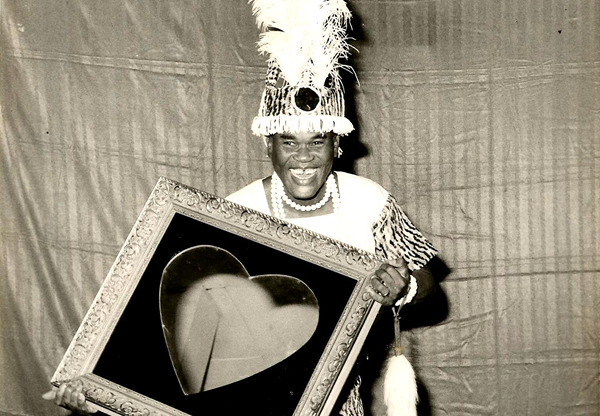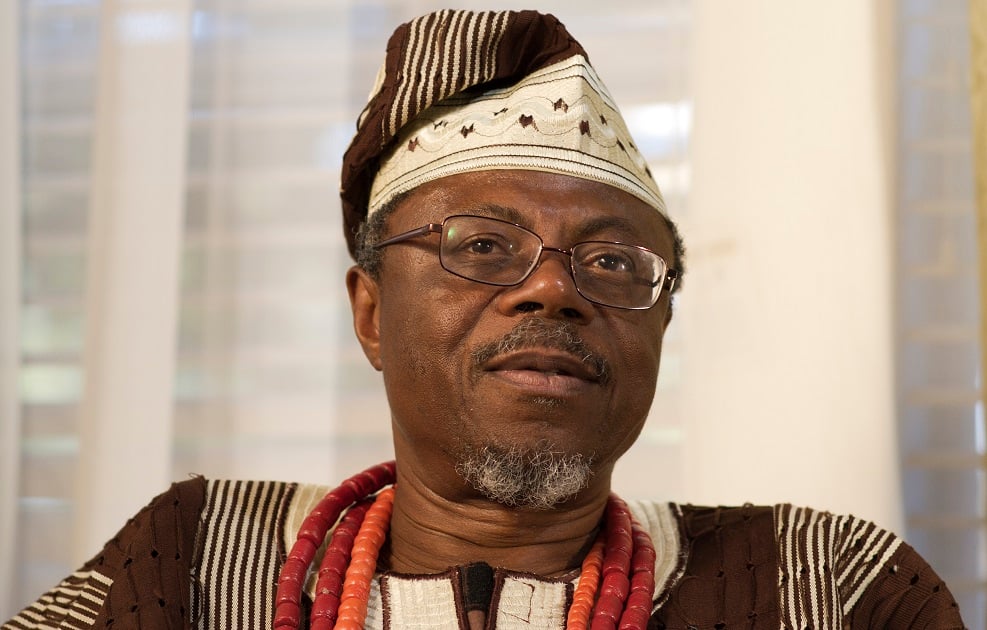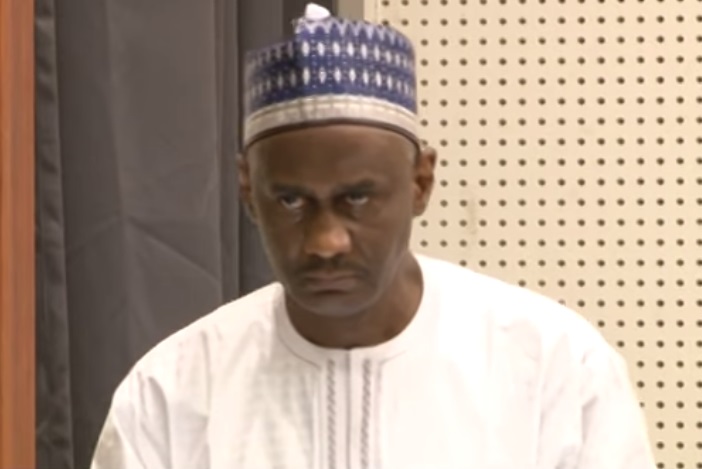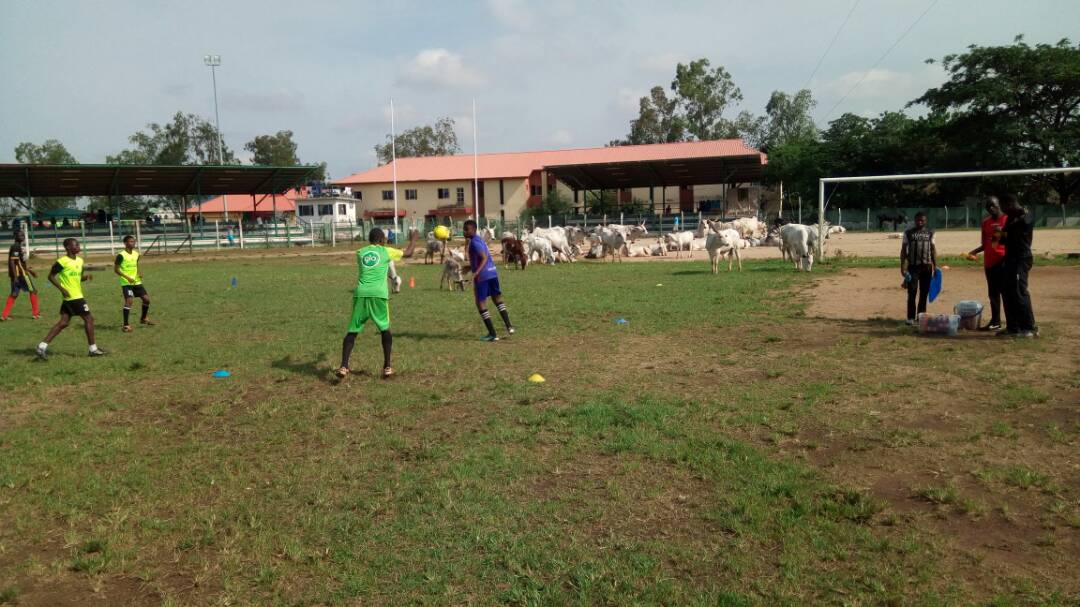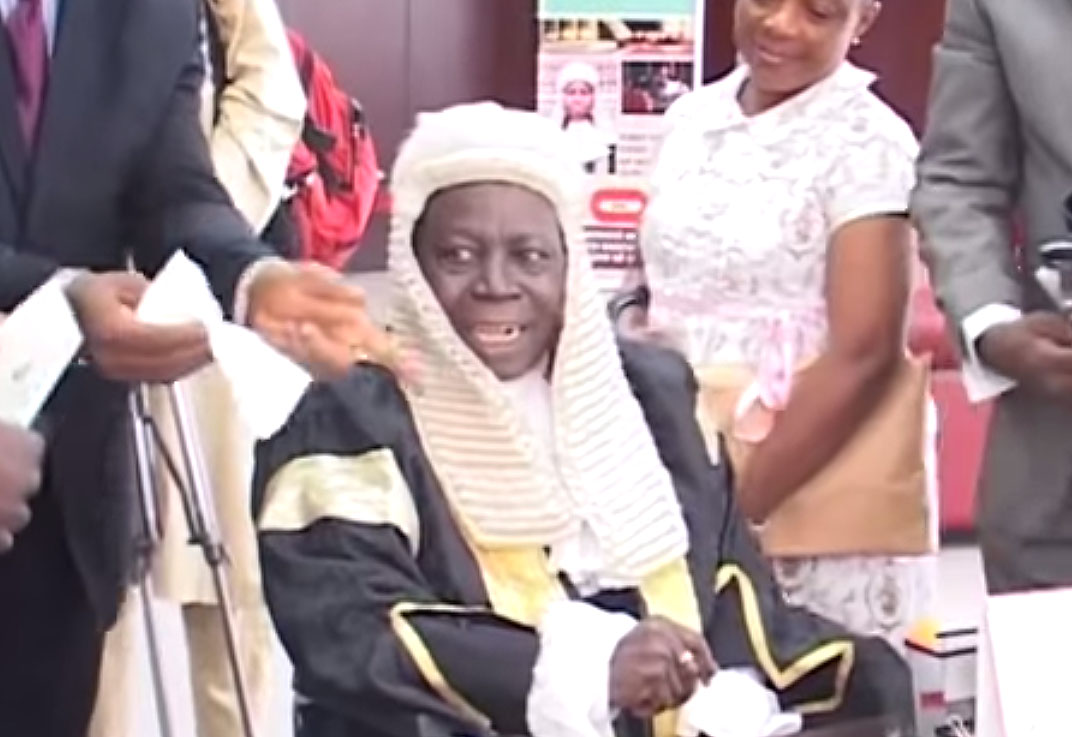BY ADEDARA ODUGUWA
Monday 10 July, 2017 marked late Chief (Dr.) Adedeji Hubert Ogunde’s 101 posthumous birthday. As fans of the doyen worldwide gathered to celebrate this illustrious son of Africa and a legendary singer, prophet, actor, doyen of African theatre, father of Yoruba operatic theatre, a resounding pioneer of the Nigerian drama and father of Nigerian folk opera, one thing came to bear, ‘The Peoples’ Conscience’. This is necessary in this precarious time, when things are falling apart and the center losing its grip.
Corruption by definition is dishonest or fraudulent conduct by those in power (and those outside it), typically involving bribery while bribery is the giving or offering of a bribe (Oxford Dictionary, 2017). Petty thieves are often imprisoned while politicians who steal in billionaires go unpunished. Further, bribery is not limited to public officers. Today, young boys in secondary schools are corrupt. West African Examinations Council’s (WAEC) result is gotten by offering bribes to the haggard-looking-hungry-intelligent teacher, who has everything but fund to live a good and fulfilling life (since he is not well paid); same is the case of many Nigerians, who outlawed government agencies by invading taxes or possessing no/incomplete licenses, thereby offering kick-backs to Federal Inland Revenue Service (FIRS) officers in their offices and police officers on the road; Our judges reserve best judgment for highest bidders. Justice today can only be bought with huge sum of money not merit of the case; Tertiary institution lecturers are friendly only to students who are ready to bribe their ways to graduation (in cash or kind); Elections are now rigged by the majority while friends of Mr. President are now immuned against arrest even when they are the most financially corrupt and reckless. Then, one would conclude that Chief Hubert Ogunde was not out of words when he wrote his prophetic opera ‘Ekun Oniwogbe’ (The Peoples’ Conscience).
In his original Yoruba lines: “…Owo eyin logbode o! Owo eyin logbode o!!Oba n gba ti e… Ijoye n gba ti e…Adajongba ti e …Balogun ngba ti e…Olopa ngba ti e…Eri ba ye tida!! Aye dori kodo. Owo eyin logbode o! Dokitangba ti e…Igbagbo ngba ti e…Imale ngba ti e…Oluko ngba ti e…Oga ise ngba ti e…Otun ilu ngba ti e…Osi ilu ngba ti e…Owo eyin logbode o! Olori ilu n gba ti e…Ose ilu ngba ti e…Okurin ngba ti e…Obirin ngba ti e…Omode ngbati e…Agba ngba ti e. Ki olori iluwo rare, Ki ijoye wo ra re, Ewo! Ewo kedere, Ema wo inu okan, Okan ni wo gbe. Bo mo, bi o mo, K’adajo wora re; K’amofi wora re ;K’oluko wo rare; K’olo gun wo ra re; K’olopa wora re; K’akowe worare; K’oselu wora re ; K’onifa wo rare ; K’afa wo rare ; Ki pasito wo ra re; K’omode wo rare; Ki agba wo rara re; Ki oko wo ra re; Ki iyawo wo ra re; Ewo, ewo ema wo kedere, ewo inu okan, tori iwogbe lokan o!”
Putting this in English: “Bribery is the order of the day!! Kings collecting their own, Chiefs collecting their own, warlords collecting their own, police collecting their own. See what the world has turned to, the world is upside down. Bribery is the order of the day! Doctors collecting their own, nurses collecting their own, Christians collecting their own, Muslims collecting their own, teachers collecting their own, foremen collecting their own, politicians collecting their own, president collecting his own, vice-president collecting his own, men collecting their own, women collecting their own, youths collecting their own , adult collecting their own. See what the world has turned to, the world is upside down.
Advertisement
Kings (President, governors, Local government chairmen and monarchs) should x-ray their conscience; Chiefs (states and national assembly members, ministers and ambassadors) should x-ray their conscience, look and look very carefully the conscience whether it’s clean or not. Judges should X-ray their conscience, lawyers should X-ray their conscience, teachers should X-ray their conscience, soldiers should X-ray their conscience, police should X-ray their conscience, students should X-ray their conscience, politicians should X-ray their conscience, Ifa priests should X-ray their conscience, Imams should X-ray their conscience, pastors should X-ray their conscience, youths should X-ray their conscience, adults should X-ray their conscience, husbands should X-ray their conscience, wives should X-ray their conscience, look and look very carefully the conscience whether it’s clean or not.” (Source: Ekun Oniwogbe by Chief Hubert Ogunde, 1974).
However, this political satire was a lyric idealized and acted at the Glover Memorial Hall, Lagos in 1974 when Nigeria’s population (61.86 million) was barely above thirty percent of what it’s today (191.84 million). 43 years after, the situation remains same, if not worse. What is obvious in Ogunde’s thinking and deliveries was how he combined art with humanitarianism. For Ogunde, music is only a noise without didactic message. He went about expressing his sentiment passionately for the masses through his God-given talents conspicuously and fearlessly. Opposite is the case today when artists are hired not inspired.
Similarly, in March 2, 1964, Ogunde lampooned the Western Region government (of Chief S.L. Akintola) with yet another blockbuster ‘Yoruba Ronu’ which earned him ban for two years between March 31, 1964 and February 4, 1966 when Lt. Col F.Adekunle Fajuyi, the then Military Governor of Western Nigeria, revoked the unlawful ban. In Yoruba Ronu, Ogunde narrated tale of a prominent King Fiwajoye who was sold into slavery by his deputy (Ekeji-Oye) due to envy and greed. This betrayal led the king and his subjects into much anguish and self-dependencies. In a direct reaction from Ekeji-Oye, “You called me Second in Command! You called me with empty mouth. If they bring yam, it’s the king they will give it to. If they bring corn, it’s the king they will give it to. If they bring money, it’s the king they will give it to. The king is getting fatter, I am getting thinner! I am not contented with this…”
Advertisement
For this reason, Ekeji-Oye went to the kingdom of Yeye-Iloba and told the Queen that if she could bribe him with huge amount of money, he would sell and deliver the king and his people to her. This was a great news and deal for Yeye-Iloba who perhaps was desperate to capture Fiwagboye’s kingdom. Consequently, this was how Ekeji-Oye collected a huge amount of money from her and delivered the Staff of Authority to Yeye-Iloba, so that her kingdom could flourish, thereby selling Oba Fiwagboye and his subjects into the hands of their enemies. If there is no river behind fish, it’s only a river, without the Staff of Authority, there is no Fiwagboye and his Kingdom. However, not long from this period, Yeye-Iloba waged war against Fiwagboye and his people and she won gallantly. Oba Fiwajoye and a few of his people were whisked off their land, used, maltreated and beaten as slaves. House chores like sweeping, washing and cleaning of the palace became daily routine for the new foreman (Oba Fiwagboye) and his subjects in the palace of Yeye-Iloba.
Oba Fiwagboye’s people were in the state of sadness and hopelessness. They were on the verge of repentance. They called upon themselves in a united front. They became so united to the extent that Yeye-Iloba was forced to free their king and other captives. This was successfully achieved. Oba Fiwajoye returned to his stool and things changed completely for good as the Staff of Authority was recouped. Consequently, Ekeji-Oye (Second in Command) was arrested, disgraced and banished for the act of betrayal. Oba Fiwagboye and his people also returned to their joyous and peaceful life. Just like what was experienced in the past. Corn starts to grow, traders start to make profit. Wealth, prosperity and power returned to the land and Oba Fiwajoye became wealthier than before.” (Source: Yoruba Ronu by Chief Hubert Ogunde, 1964- transcribed by Adedara Oduguwa, 2015).
Today, the case remains the same as Nigeria unlike her neighbours in the South, West, East and North is most divided. With greed and self-centeredness paddling canoes of our affairs. Shameful! Ogunde must be very disappointed in his grave for this.
Today, betrayal of trust, bribery and corruption would rather be celebrated than discouraged if one must remain in power and relevant. That is the new reality. For example, a national assembly member blew the whistle of how over N200 billion was padded on budget by Speaker of House of Representatives and his cohorts, the culprits were exonerated since they belong to the untouchables while the whistle-blower was severely punished for distracting the loot-process.
Advertisement
In a relative vein, the same national assembly is working very hard to stop corruption by legalizing it. Just last month, precisely June 14, 2017, the ‘Economic Amnesty Bill’ simply put, ‘Amnesty Bill for Looters’ and or ‘70 ratios 30 percent Bill’ was introduced in the National Assembly.
The Bill seeks to allow those who loots public treasury to return only 70% of the stolen funds in exchange for total amnesty from persecution. By implication, if this illegal, immoral, discriminatory, unconstitutional, contradictory and direct means of legalizing illegality bill is passed into law; it means Nigerians have officially enacted corruption as a practice and corrupt public or private officers can thereafter sleep with their two eye closed. One wonders why promoters of such bill are not even arrested in the first place for such crime-induced thought against human dignity and the rule of law.
For Ogunde, life is not about what you made from it, but what you give to it. His love and support for the people was second to none. From 1944 when he resigned from the Nigeria Police Force and started his career in theater arts, to 1990 when he bided the world goodbye, his life in its entirety showcased ‘service to the people’ and not to the ‘privileged few’.
Ogunde fought gallantly head-up against the colonialists, immorality, incompetency, corruption and injustice. What can be said about our actors and musicians today? Whose core occupation is to support the privileged few, economic bourgeoisies and shylocks against the masses.
Advertisement
It is only in Nigeria that once you are a member of the ruling party or friend of the government in power that the title of ‘do no wrong’ is bestowed on you. A case in reference was the case of a former governor who is now a serving Senator of the republic. He was slammed with 13 counts of corruption, later 18 but on the June 14, 2017 when Nigerians were keenly waiting for his persecution, the federal government cleared him with such embracing words like ‘go on great servant and sin no more’. From that moment, he was freed; invaded persecution and defeating rule of law since he is friend of Mr. President and he could afford to offer 100 lawyers N1billion each. Is it then coincidental that the same day (June 14) that this man was exonerated, that the ‘Amnesty Bill for Looters’ was introduced? Then, it might be right to say that ‘our rule of law is not absolute’ men of power are certainly above the law in this part of the world. We have suffered mostly from those we trust than those we never trusted.
Between 1944 and 1990, Ogunde demonstrated his patriotism by documenting various accounts of exploitations, bribery, corruption, immoralities and Nigeria’s unity in his various titles: Israel in Egypt (1945), Nebuchadnezzar’s reign and Belshazzar’s feast (1945), King Solomon (1945), Worse than Crime (1945), Strike and Hunger (1945), Tigre’s Empire (1946), Towards Liberty (1947), Bread and Bullet (1950), Yoruba Ronu (1964), Otito Koro (1964), Keep Nigeria One (1968), Ogun Pari (1969), Ekun Oniwogbe (1974), Muritala Muhammed (1976), Nigeria (1977), Igba t’o de (1977). Although, Ogunde’s works are not limited to the listed, nonetheless, these works show his consistency and commitment in the business of others.
Advertisement
In contrast, what is happening today is opposite. Writers, musicians and movie actors act without didactic messages and those who have messages must have been paid by others to do so. Hypocrisy and corruption have almost turned to norm. The trend is grave that even the menace has crawled into churches, mosques and traditional temples where solace were previously sought. Everyone in today’s Nigeria would agree with Mr. Ayi Kwei Armah that ‘the beautiful one are not yet born’ or perhaps, ‘they are dead’. With so many confusion in the political, economic and cultural cloud of our existence, it is almost becoming impossible for anyone to think there is a way out. Then one after the other, we begin to ask for whereabouts of the likes of Ogunde, Awolowo, Balewa, Azikiwe, Adedoyin, Bello, Fela, Macaulay and Fawehinmi. Unfortunately, they were all now with the saints. Leaving our public sphere for us to plough and plunder.
On the other hand, immorality (the state or quality of being immoral; wickedness)has become fashion and fad in today’s society, according to Ogunde in his much talked about opera ‘Igba t’o de’ a social commentary on the abandonment of our culture and heritage for foreign atypical culture that exposed us to several deviant behaviours, youth delinquencies and irregularities. For instance, young male Nigerians have turned their creativity into modern fraud, what is today called ‘Yahoo or Yahoo Plus’. ‘Yahoo’ is a term commonly used to connote illegal way of collecting money from people through fraudulent means. While ‘Yahoo Plus’ often mean an illegal way of collecting money from others through voodooing (illegal collection of money from people through use of black magic or ritualism).
Advertisement
What is more, young female Nigerians (aged 16-30) also engaged in similar trade but in different forms. What is called Olosho (prostitution) and baby mama (an act of carrying a man’s baby without getting married to him) is today common in our society. However, majority of these deviant behaviours are due to bad peer influence and knowledge of Western culture. Scores of our ladies dress half naked and undignifying thereby distorting the sanity in the social system. Ogunde’s ‘Igba T’o De’ (1977) opera well captures this menace and 40 years after, remains relevant. Dear tourists, students and anyone that is interested in history and theater art, a visit to Ogunde Living History Museum, Ososa (home of the doyen) might worth it. Also, lovers of Ogunde’s work can now visit www.ogundemuseum.org andwww.hubertogunde.org to view his works online.
Some are called to serve while others are called to rule. No matter what your calling is, remember, life is not what you made from it but what you give to it. Chief Adedeji Hubert Ogunde can simply be described as a man of purpose who knew what he wanted and gave everything to it.
Advertisement
Today, 27 years after his death, he is being remembered as one man who gave his talents, strengths and contributions in its entirety (as given by God) to humanity and died empty. Are you a national, state or local government leader? Are you a musician, writer, actor/actress? Are you a pastor, Imam, or traditional worshiper? Whoever you are, ask yourself, how would I be remembered?
Oduguwa, a social commentator and culture enthusiast sent this from Sagamu, Ogun state
Views expressed by contributors are strictly personal and not of TheCable.
Add a comment
